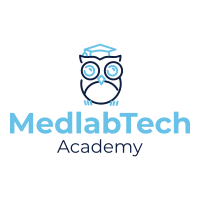1. What Is Phlebotomy and Why Are You Interested in It?
Question: What is phlebotomy, and why are you interested in it?
Answer: Phlebotomy involves drawing blood for medical tests, transfusions, or research purposes. My interest in phlebotomy stems from my passion for healthcare and the vital role phlebotomists play in diagnosing and treating patients. Being able to contribute to a patient's health journey by providing accurate blood samples is immensely fulfilling to me.
Pro Tip: When answering this question, focus on your genuine passion for the field. Employers want to see that you understand the importance of phlebotomy and are motivated by more than just a paycheck.
2. Describe Your Training and Education
3. How Do You Ensure Accuracy and Safety in Blood Draws?
Question: When drawing blood, what procedures do you follow to ensure accuracy and safety?
Answer: I adhere strictly to identification protocols to confirm the patient's identity and the required tests. I maintain a clean and sterile environment to prevent contamination and ensure the patient is at ease throughout the procedure. I am meticulous in labeling and handling blood samples, ensuring they are correctly processed and reach the lab promptly.
Pro Tip: Detail the specific steps you take to maintain accuracy and safety. Employers value candidates who show attention to detail and a strong commitment to patient care.
4. Handling Difficult Situations
5. What Are Your Long-Term Career Goals in Phlebotomy?
Question: Where do you see yourself in the future within this field?
Answer: In the long term, I aim to continue honing my phlebotomy skills and aspire to take on leadership roles, such as a supervisory position. I am committed to ongoing education to stay abreast of advancements in phlebotomy and healthcare. Ultimately, I hope to contribute to improving procedural standards and patient outcomes within the field.
Pro Tip: Share your vision for your career path. Employers appreciate candidates who are forward-thinking and committed to professional growth.
6. Discuss a Time When You Improved a Process
Question: Can you share an example of how you improved a process in your previous roles?
Answer: In a previous position, I observed that the process for handling and processing blood samples was inefficient, leading to delays. I suggested and implemented a new workflow that streamlined the process, reducing turnaround times and increasing patient satisfaction. This experience taught me the value of continuous improvement and effective teamwork.
Pro Tip: Provide concrete examples of how you’ve made a positive impact in your past roles. This showcases your problem-solving skills and ability to drive efficiency.
7. Handling Equipment and Supplies
Question: How do you properly handle and maintain phlebotomy equipment and supplies?
Answer: I follow strict protocols to ensure all equipment is sterile and in good working condition before each use. This includes regular inspections and maintenance of tools, as well as meticulous tracking of supplies to ensure that nothing is ever out of stock. Keeping everything organized and ready is crucial for maintaining a smooth operation and ensuring patient safety.
Pro Tip: Emphasize your commitment to maintaining high standards of equipment and supply management. This is crucial for ensuring both safety and efficiency in a phlebotomy role.
Summary
Acing your phlebotomy interview is all about preparation and confidence. By practicing your responses to these common questions, you can showcase your expertise, passion, and dedication to potential employers. Remember, your journey to becoming an outstanding phlebotomist doesn’t stop at the interview. At MedLabTech Academy, we offer a wealth of resources, from in-depth guides to practice tests, designed to help you excel in your phlebotomy career.
Are you ready to take the next step? Explore our educational materials and start advancing your skills today!

